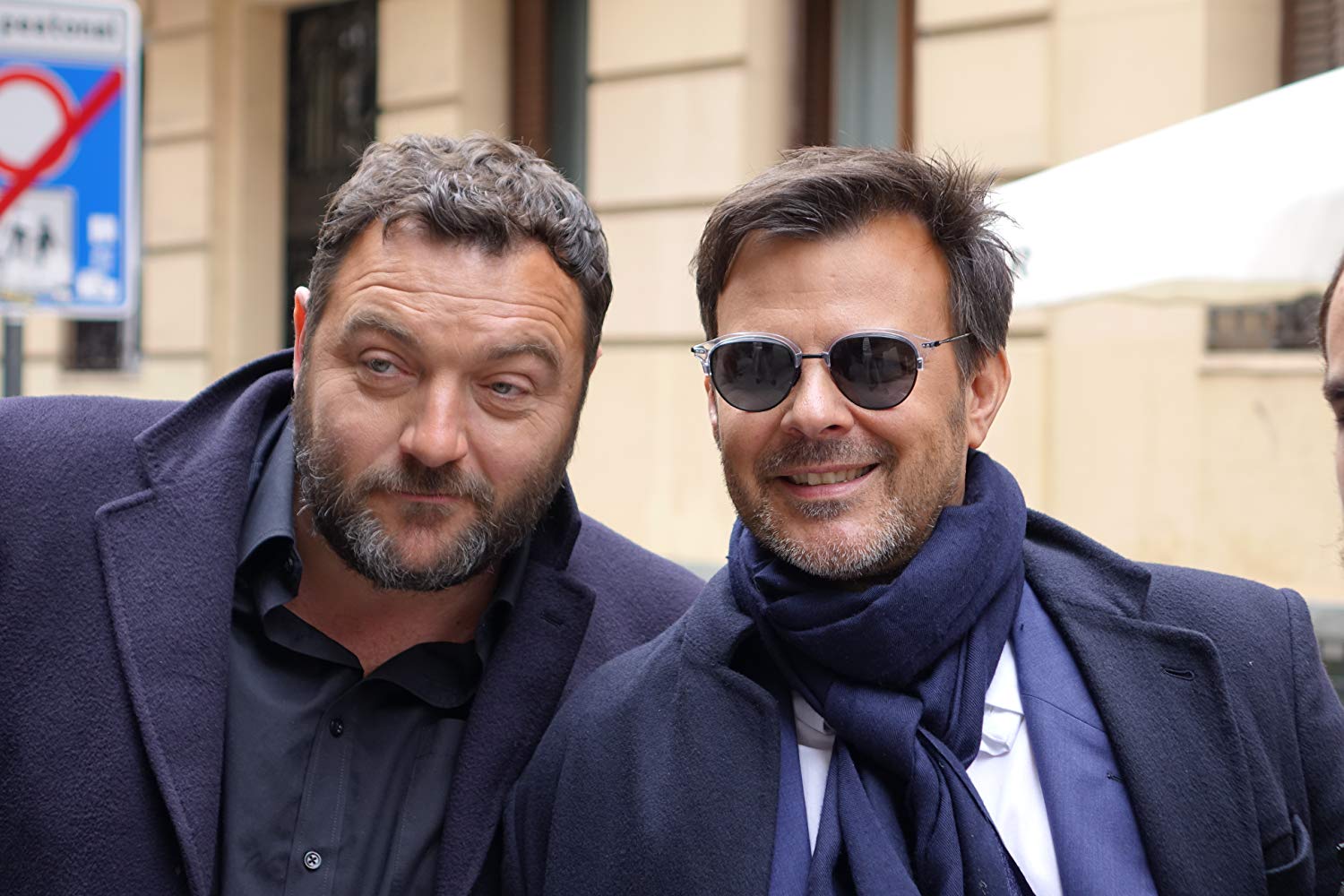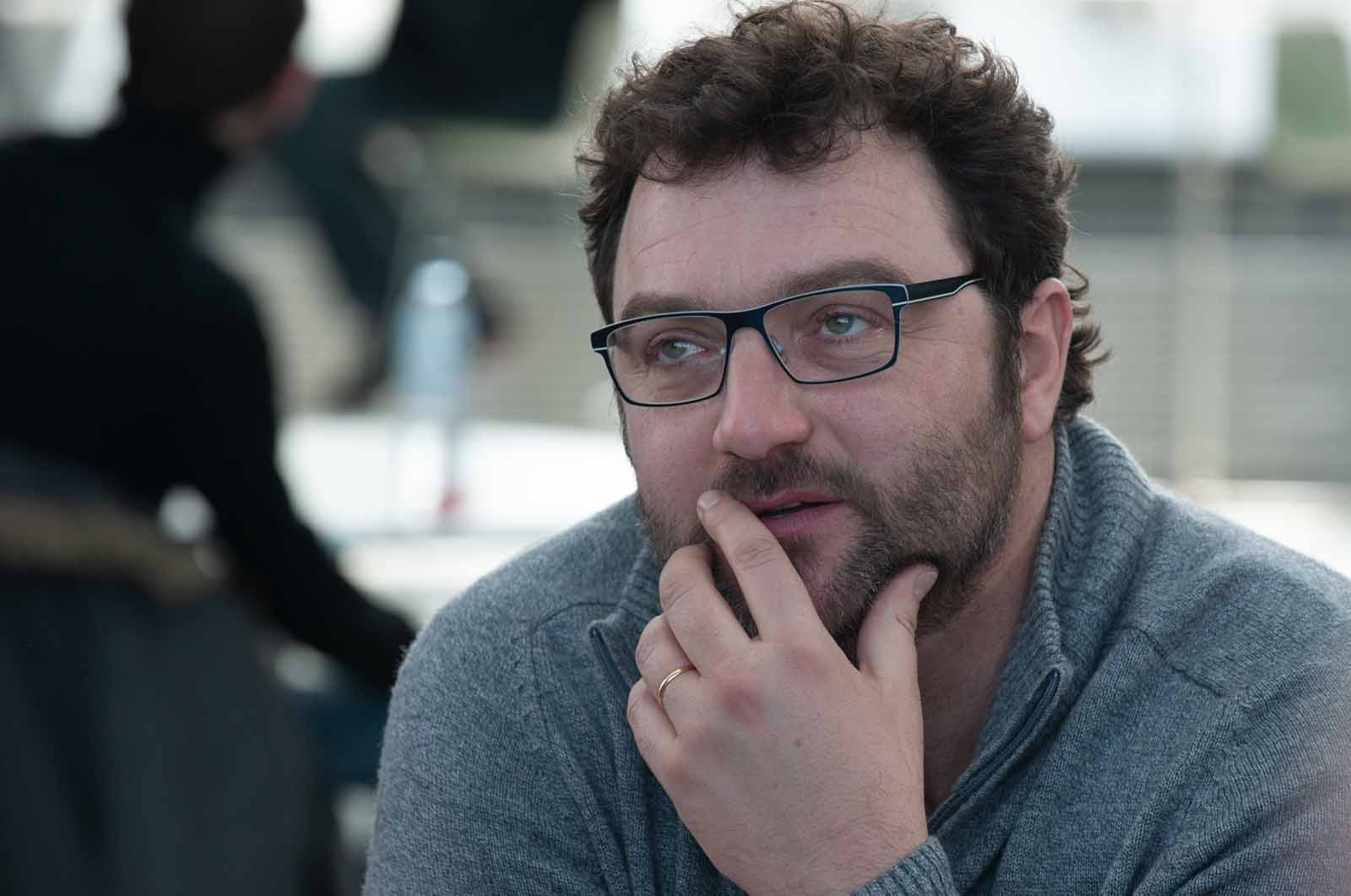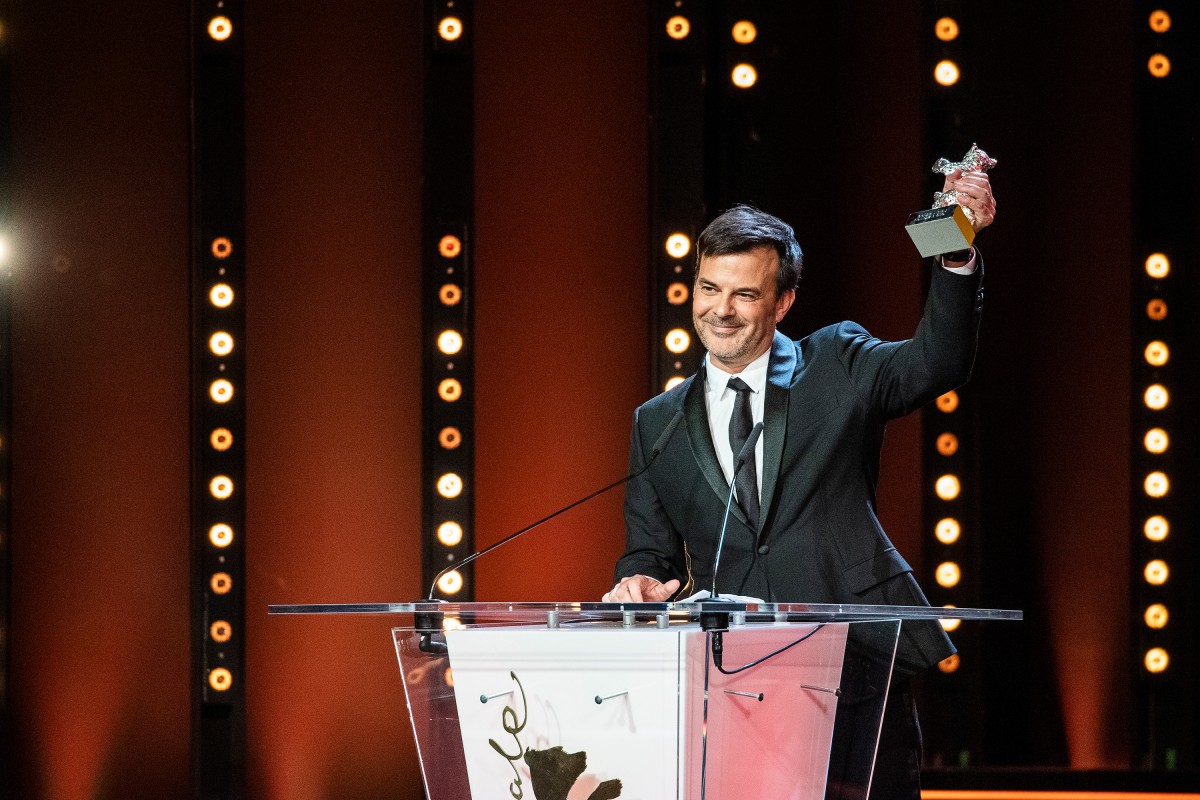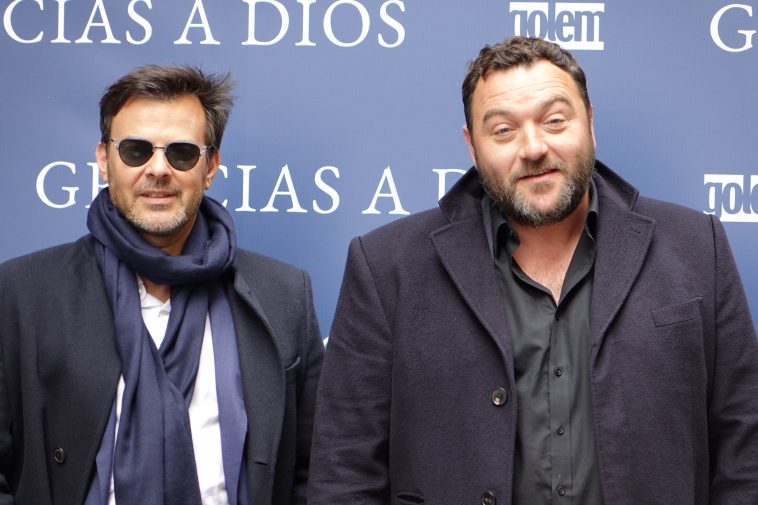When we first saw By the Grace of God, it was back at the Berlinale – but such is the profound effect this devastating drama has, it’s not a film we were able to shake off easily, and nor should we have. François Ozon turns his indelible talents to darker material in this endeavour, teaming up with the excellent actor Denis Ménochet – and when the pair came to London for the film festival, we had the pleasure of sitting down with them both to discuss the challenges they have faced bringing this story to screen. They discuss with us the Catholic Church’s involvement, and comment on where they believe the Church is today, and whether things are getting better…
What was it about this story that appealed to you François?
François Ozon: I think it was the right time for me to make a film about men, because I’ve made many films about strong women and female characters and this time I wanted to make a film about male fragility, and to show men expressing sensitivity, so I was looking for a subject and I discovered online the website of the victims, and I read all of the testimonies and I was very moved and touched, so I decided to meet them, and I met first Alexandre who came with a big file, all the exchanges, all the emails he had with the Church, and he told me the story and I met the other victims and realised it was a very strong story. Between 2014-2016 they had a big file. I felt it could be a great story to tell so I decided to make the film.
I imagine you have to do lots of research whenever you take on a new project – but in this instance I imagine the research was hard to do, because you were meeting people, and trying to get into the head of people who have been through so much?
Denis Ménochet: Yeah if you have a bit of empathy it’s really hard to read all of those testimonies on the website they created. It was heartbreaking at times, I must say.
As an actor was it challenging to access those emotions?
DM: You focus on the sense of trauma and what it does to people and how it evolves. For instance, it was a question of prescription with the law, which is ridiculous because trauma works in a different way. Usually when people become fathers themselves and see children the age they were when they were abused, it comes back to the surface in the worst kind of way sometimes, so yeah that was interesting to study.
In regards to men showing their emotions, I remember thinking when watching it how rare it still be to see men cry on screen.
FO: Yes I know, at the moment the idea of the title was ‘The Crying Men’. You are not used to seeing tears by men, but I think things are changing, and I think that the cliché of seeing men in action in cinema, and the women show feelings and sensitivity, I think it’s important today with many coming out of the MeToo movement, to show an equality between men and women.
Have you had much feedback from the guys, and what was it like showing the movie to them?
FO: I think it was disturbing for them, because it’s a very close period, only three years ago for them, so it was strange to see their life on the big screen. I think they were very touched, a little bit nervous about the reactions from their family because for the brother of Francois, or the mother of Alexandre it could’ve been disturbing, but actually they enjoyed the film, and they didn’t see their relative, they saw fiction, so it was funny to see their reaction, they were very happy even if they were not very nice in the film, but they were able to keep a kind of distance.

In the film the characters are taking on a very powerful institution, did it feel at times like the movie was taking on the same institution? Did it feel like you were facing some of the same issues they had to face?
DM: Yeah, they tried to silence us, they tried to stop the film from being released, so we suffered the same sort of things in a way.
In some ways them trying to stop the release is symbolic of the movie.
DM: Completely, and it was infuriating. And we were proud of it as well, because it was free publicity at the same time.
FO: Unfortunately the justice considered that the freedom of question was more important for this case than for the presumption of innocence. Especially because Preynat has always said he was guilty, he always said he had a problem with kids, he never denied what happened, so the film was released and it was a big success in France.
Was there ever a time when it looked like it might never be released? Or were you always confident you would win that battle?
FO: We won the prize in Berlin three days before, but the jury in Berlin are not the justice system, it’s not the same! So we were very nervous, we pretended not to be, but we were.
DM: You were nervous.
FO: You were sure of the release?
DM: No, but having the film festival on the same day, it was just a weird day.
You’ve mentioned the response from the victims but have you had a response from the Catholic Church?
FO: Yes, many. You know we decided during the promotion not to hide the film from the Church but to invite them each time we had Q&A screenings in France, we invited the Church to do the Q&A with us and very often they accepted and supported us, not openly, but many Cardinals have come to see us and told us it’s good to make this film and they hope it will change things, and in the end many Catholics came to see the film because many Catholics are furious and upset with the situation because paedophillia goes against the message of God. It says they have to protect the weakest people, the children, so it’s a manipulation of the message of the Catholic Church, so yes we’ve had a very good response. Especially after watching the film. Before watching it they thought I was the devil, but when they see the film they realise it’s about the victims and there is no revelation, no scoop about the Church, you know? What you see in the film everybody knew before, but to see the intimacy of the victims, to see the damages on the families, that was new for all these people.
François it feels like every one of your films is so different from the last. Is that a conscious decision? When you finish a project do you think, right, I want to try something different? Or do you just follow the right stories and see where it takes you?
FO: I follow my instinct. I don’t think too much, but maybe that’s my problem, I don’t analyse my work so much. I make a film a year and I don’t want to repeat myself so I try each time to go in another direction, I try to have new challenges and this time that was the case, and the next one will be something different.

And Denis I love you in Old Boys, you seem to have a very self-deprecating, almost English sense of humour – where has that come from?
DM: I did an ancestry test and I’m 35% from England and Scotland, so that makes sense. I wish to do more films over here, but they don’t wait for me they think I’m just a French actor.
Do you find as a French actor you’re labelled as being only that when you go for roles abroad?
DM: Yeah they ask me to bring a baguette and do a stupid accent, so I don’t do it. I’m an actor, I would do anything that speaks to me.
And you’ve just worked with Wes Anderson – how was that?
DM: That was epic, it was incredible, he has a very different approach to cinema. He’s incredible, but I prefer François Ozon of course!
You’ve worked together before in In The House, which had a real farcical element to it. How was it collaborating again on something that was tonally just so different?
FO: It was a nightmare. No, I knew Denis and for me it was difficult to cast this role because I knew the real person, the real victim, and I had to forget them and find another person, but for the character of Francois it was very quick that I had Denis in mind, because I wanted someone powerful, someone with real strength, physically, and yet is fragile at the same time.
DM: And a great actor as well. It’s a craft! I do work as well.
FO: I told him the story and he cried like a baby and I thought, he’s my Francois!
How is it watching this film back for you Denis? You put so much of yourself into this character, you have to give everything to it. Is it then difficult to watch back?
FO: He didn’t watch the film.
DM: No, but I don’t really ever watch them. But I did watch this once. It’s like listening to your answer machine in front of 200 people, it’s embarrassing.

Can you get caught up in it François? Emotionally involved like we might?
FO: Yes of course, I am moved. I had some flashbacks of memories from when I was a child, and when I heard all these testimonies in this way, I said, everybody remembers an adult that was strange when you were young, and I had some memories and suddenly I was back with a priest who displayed strange behaviour, and I had a feeling of vertigo, you know? If this priest had crossed the line with me, my life would’ve totally changed, so it’s very powerful and strong to work on such a topic.
Are things getting better in the Catholic Church with the new Pope? Is that something you would agree with? I know there’s still a long way to go, but is it at least moving in the right direction do you think?
FO: A long way to go. But when we met all the people from the Church they were always old men. You realise you won’t make a revolution with old men, you need a young Pope, someone who is 30 years old who tries to change everything, because everything needs to be changed, in the Catholic religion they have to move on and adapt to the society of today. They have to question sexuality.
DM: It’s for economic reasons that priests are single as well, because it would cost so much money to the Church for them to be living a normal life.
FO: It comes from a tradition, they have no sexuality, no wife, it’s so they don’t inherit. So the money always goes back to the Church.
DM: And in the Catholic religion, I remember when I was a kid, because I was raised Catholic, you had to confess all the time. It puts so much pressure on you, you almost had to come up with things. But then I was a bit shocked by the fact you were always forgiven. There’s this old joke where a guy comes in and says, ‘Father, I have killed my mum’, and the Priest says, ‘how many times my son?’ It’s really funny because that’s how it is.
So next up is The Summer of 85 – what can you tell me about that one?
FO: It will be lighter. It’s a coming-of-age movie with teenagers and it was a lot of fun and a lot of pleasure after this big drama, to go back to my roots. I have this feeling to want to make my first feature again.
Can you see yourself maintaining this film a year you do? Or will you have a break soon?
FO: You are tired of Ozon? [Laughs] I like to make movies.
DM: You should do a TV show now, a series.
FO: You think so?
DM: Yeah I think you will. That will be really interesting. I want him to do that because he will be seen, because he has so much talent.
FO: I’m not sure I’d have all the freedom I have in movies if I made a series.
DM: Try it once.
FO: As long as I can make films in cinema, I’ll stay in cinema.



























Leave a Comment